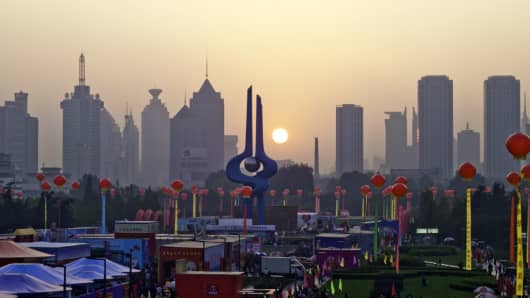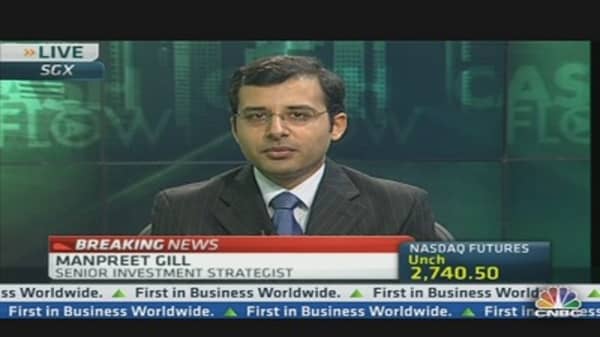While China's gross domestic product (GDP) growth accelerated by a faster-than-expected 7.9 percent in the fourth quarter from a year ago, reconfirming a rebound in the world's second largest economy, analysts are questioning the sustainability of this uptick in economic activity.
Driven largely by government stimulus, China's growth momentum is unlikely to extend beyond the first half of the year, said experts.
"We haven't seen much organic growth in China, especially when it comes to external demand. It was mostly driven by government rather than private investment - government infrastructure spending saved Chinese growth," Xianfang Ren, senior economist at IHS told CNBC.
"The rebound by itself looks quite shaky. The trajectory of recovery is flat, mirroring the shallow downturn it's rebounding from," she said.
Ren said while impetus from the $150 billion infrastructure-focused stimulus package announced in September will boost the country's key construction sector in the first and second quarter, the launch of new projects will be constrained by the government's ability to finance them.
The People's Bank of China (PBoC) has already started clamping down on local government financing, she said, after borrowing surged in 2012. Local government bond issuances rose to $102 billion last year, 148 percent higher than the previous year, according to the central bank-backed China Central Depository & Clearing Company.
Stephen Schwartz, chief economist for Asia at BBVA Research, agrees that growth will likely peak in the first half as policy stimulus wares off. He added that there are a number of factors that will constrain fresh stimulus measures.
"The authorities are walking a fine line, and they don't want to over stimulate the economy because they are concerned about inflation later in the year," Schwartz said.
He added that with risks of an asset bubble in the property sector and concerns building around the shadow banking sector - credit channels outside the formal banking sector - may limit further stimulus. After decelerating in 2011, shadow banking activities are expanding, according to BBVA Research, in particular among property developers and local governments.
In fact, Zhiwei Zhang, chief China economist at Nomura, expects the government to tighten monetary conditions to control these risks, forecasting two interest rate hikes in the second-half.
(Read More: China Inflation Accelerates - Time to Remove the Punch Bowl?)
"We expect authorities to focus more on controlling the risks from inflation and shadow banking," he said.
Credit growth is expected to decline to around 20 percent in 2013, he said, after peaking at 59 percent in the second half of 2012, on a year on year basis.
As credit growth slows, Zhang expects GDP growth will trend lower from 8.2 percent in the first quarter, to 8 percent in the second quarter, 7.4 percent in the third quarter and 7.2 percent in the fourth quarter.
Exports Remain a Risk
Economists also maintain that exports, which make up around one-quarter of the country's GDP, remain a risk for the economy in 2013, given the recessionary environment in the euro zone and muted growth in the U.S.





